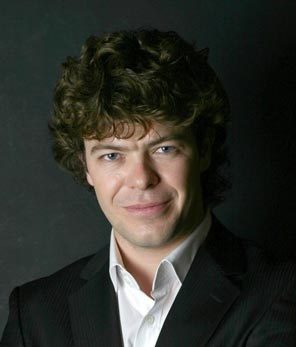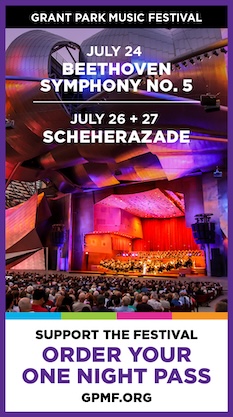Spanish conductor makes admirable CSO debut

Pablo Heras-Casado has been garnering much international attention of late among today’s up-and-coming podium hotshots. A regular guest with the Los Angeles Philharmonic and San Francisco Symphony, Heras-Casado debuted with the Royal Concertgebouw this season and will bow with the New York Philharmonic and the Met in 2013-14.
Heras-Casado made his Chicago Symphony Orchestra debut Wednesday night. Looking much younger than his 35 years, the Spanish conductor led two colorful suites, one French and one Spanish. If both performances ultimately left a rather mixed impression, neither was the fault of the Granada native who clearly is a rising star to watch.
There is not much unknown Debussy lurking in the shadows, particularly works for orchestra, but Wednesday marked a belated CSO premiere with Debussy’s La boîte à joujoux. The late piano suite was inspired by the dolls and toys of the composer’s adored daughter Chouchou, who, tragically, would die at the age of 13 from diptheria, just one year after her father.
“The toy box” is a slight work with a fanciful scenario of a doll and toy soldier falling in love, separating over a romantic rival, a mock battle and eventual reconciliation. When the First World War prevented La boîte from its planned performance as a children’s ballet, Debussy stopped his orchestration after 93 measures, and the scoring was later completed by Andre Caplet.
La boîte is not prime Debussy but it has its attractions with its gentle charm and wit, the composer throwing in wry musical quotations from himself and others. Had Debussy finished the work, the arrangement would likely be more individual and nuanced than Caplet’s more populist style.
Heras-Casado displayed a worthy hand, with a fine sense of line, skillful balancing and well-chosen tempos. The problem is the music is insufficiently varied or distinctive enough to hold interest over its 35 minutes with the extended sucrose injection causing fatigue over the long haul.
Still the Spanish conductor conveyed the whimsy and lyric charm of this slender score, with the beguiling playing of English hornist Scott Hostetler, flutist Mathieu Dufour and oboist Eugene Izotov in synch with the light caprice of the music.
A considerably better known quantity is Manuel de Falla’s ballet El amor brujo, which concluded this abbreviated Afterwork Masterworks program.
The conductor showed a sure feel for his compatriot’s idiom, drawing playing both rhythmically taut yet atmospheric. The oft-excerpted “Ritual Fire Dance” was vital and frenzied without going over the top, Heras-Casado drew out the nocturnal languor of the Midnight section sensitively, and violinist Stephanie Jeong and cellist John Sharp floated lovely solos in the Pantomime.
The problem was the vocal excerpts. Rather than performed by the usual slumming opera mezzo, these performances enlisted a genuine flamenco singer, Marina Heredia. That may have been a good idea on paper but the results were, to put it mildly, dreadful.
Whatever idiomatic flavor Heredia might have provided was buried by her problematic voice, which was dry, shallow-toned and unsteady of pitch. Though set up for amplification, it either wasn’t working properly Wednesday or Heredia was standing too far from the microphone to be picked up. Perhaps she was having a bad night, but Heredia’s raw-voiced contributions brought little pleasure or allure to de Falla’s score.
The program will be repeated 8 p.m. Thursday, Friday and Saturday with the addition of Ravel’s Le tombeau de Couperin and Pavane pour une infante defunte. cso.org; 312-294-3000.
Posted in Performances
